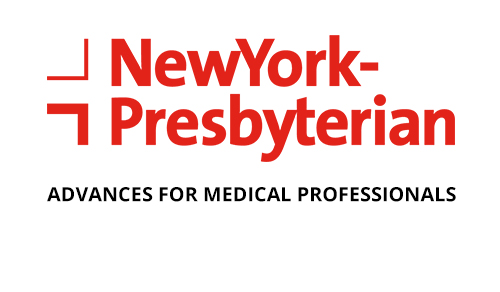Affiliations Broaden Residency Training Experience
NewYork-Presbyterian’s comprehensive rehabilitation medicine residency training programs are further enhanced by the diverse training opportunities offered at our highly regarded affiliated hospitals: Memorial Sloan Kettering Cancer Center, Hospital for Special Surgery, Bronx VA Hospital, Helen Hayes Hospital, and Blythedale Children’s Hospital.
“Educationally, our residency and fellowship programs continue to compete effectively for the most qualified applicants and provide exceptional clinical training,” says Joel Stein, MD, Physiatrist-in-Chief, NewYork-Presbyterian. “We are proud of our rigorous training programs, which have a diverse and broad curriculum that dives deep into all areas of physical medicine and rehabilitation and is further strengthened by the varied inpatient and outpatient experiences at our affiliates.”
Memorial Sloan Kettering Cancer Center

Dr. Theresa A. Gillis
“The relationship with NewYork-Presbyterian is long-standing and has been very fruitful,” says Theresa A. Gillis, MD, Chief, Rehabilitation Medicine Service, Memorial Sloan Kettering Cancer Center and Associate Professor of Clinical Rehabilitation Medicine, Weill Cornell Medicine. “We have two residents at any given time from NewYork-Presbyterian, one senior and another more junior, who are at different levels of their learning, sophistication, and understanding of the field.”
Through the affiliation with Memorial Sloan Kettering, NewYork-Presbyterian’s residents are exposed to rehabilitation principles for individuals with cancer who are in the midst of their treatment, as well as cancer survivors, including some long-term survivors who are dealing with the aftereffects of their treatment.
“Oncologists help patients survive, but we can help patients thrive,” says Dr. Gillis. “Our patients have fluctuating needs and impairments over time. Some are dealing with very sudden declines in function and uncertainty about their prognosis. We need to define in concert with the patients what are achievable goals in that setting. Survivors may experience a tremendous amount of anxiety if they develop a new symptom. We assist in diagnosing what is actually occurring, differentiating the aches and pains that can develop in any of us as we age, versus tumor recurrence or treatment sequelae. Our goal is to facilitate their recovery through physical therapy, medications, and lifestyle changes and guide them as they transition to their ‘new normal.’”
The first-year six-week rehabilitation medicine residency rotation at Memorial Sloan Kettering Cancer Center provides outpatient experience with adult patients with neurological and musculoskeletal side effects of cancer and its treatment; the second-year rotation focuses on electrodiagnostics in addition to outpatient management.
“Dr. Stein and I are of the same mind in that we want the field of rehabilitation medicine to advance and to improve patient access to skilled rehabilitation physicians and therapists,” continues Dr. Gillis. “Rehabilitation medicine is such a young field, and it is certainly the case that we do not yet have an adequate population of physicians and therapists with this skill set. The specialty needs to grow and it is in everyone’s interest to have physicians educated and proficient.”
Hospital for Special Surgery

Dr. Joel Press
NewYork-Presbyterian’s second-and third-year rehabilitation medicine residents rotate through Hospital for Special Surgery (HSS), an orthopedic specialty hospital with additional services in rheumatology and neurology. HSS is located adjacent to NewYork-Presbyterian/Weill Cornell Medical Center, and the two institutions have long had a collaborative clinical, research, and academic relationship.
Residents who rotate through the Department of Physiatry are able to build skills and knowledge of the indications and techniques for advanced physiatric care of musculoskeletal injuries. “I think a major benefit of an HSS resident rotation is the incredible number of clinicians all focused around nonsurgical, musculoskeletal care,” says Joel Press, MD, who was appointed Physiatrist-in-Chief at HSS in September 2016 and Professor of Clinical Rehabilitation Medicine at Weill Cornell Medicine. Dr. Press oversees a department of 17 physiatrists and four fellows. “The residents’ exposure to such a vast range of musculoskeletal disorders cannot be underestimated. There is interaction with the orthopedic surgeons throughout the rotation, including interdisciplinary teaching conferences. Our grand rounds are open to everyone from the Weill Cornell campus and vice versa. In addition to the numerous educational exchanges, there is a growing number of research opportunities.”
NewYork-Presbyterian residents gain experience in sports injuries, lumbar and cervical spine disorders and related interventional treatments, and hip preservation, and they participate in specialty clinics focused on sports medicine, spine, pediatric cerebral palsy, and scoliosis. They are also exposed to outpatient care and electrodiagnostics, which are supervised by an attending physiatrist with expertise in musculoskeletal and sports injuries.
Dr. Press hails from the Rehabilitation Institute of Chicago, where he served as Medical Director of its Spine and Sports Rehabilitation Center. “Rehabilitation medicine is a small specialty and a lot of us know each other,” says Dr. Press, who, in fact, trained Christopher J. Visco, MD, now Residency Program Director and the Sports Medicine Fellowship Director for the Department of Rehabilitation and Regenerative Medicine at Columbia. “Working with Chris Visco and Joel Stein, colleagues who I’ve known for many years, and participating in the training of residents in their great program, is an added bonus to my role at HSS.”
Related Publications

Columbia RunLab: Optimizing Performance and Preventing Injury

Research Update: Rehabilitation Robotics in Cerebral Palsy




